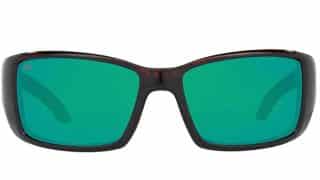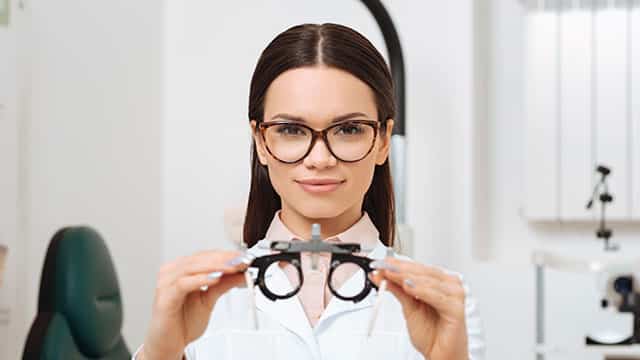Also called allergic conjunctivitis (not be be confused with pink eye), eye allergies are a bothersome but common condition. When your eyes are exposed to an allergen (any substance that irritates them), they produce histamine to counteract the allergic reaction. The release of histamines can irritate the eyelids and the clear tissues covering the white part of the eye called the conjunctiva.
Symptoms of eye allergies include burning, tearing, light sensitivity, itching, and/or dry eyes. Allergy-affected eyes may become red and swollen. Though they can be very uncomfortable, eye allergies will not cause long-term harm to your vision.
How to Relieve Eye Allergy Discomfort
If you are experiencing the symptoms of eye allergies, consult your physician or eye specialist to determine that’s the cause.
Why?
There are other eye conditions that present with symptoms similar to allergic conjunctivitis. In those cases, eye irritation could be the result of blepharitis, dry eye, infection, and even thyroid disease.
Once you are sure the problem is eye allergies and not something more serious that requires medical intervention, several home remedies may be helpful.
1. Try a Cold Compress
An icy-cold clean compress is the fastest way to achieve temporary relief from eye allergy symptoms. Place the compress on your closed eyes and leave for about 10 minutes. Do not rub. Repeat as many times a day as needed.
To eliminate the risk of introducing more allergens or bacteria to your eyes, wash your hands and use a clean cloth for each application.
2. Apply Artificial Tears
Over-the-counter eye drops meant to lubricate the eyes can help wash allergens away.
Did you know that you should store most types of eye drops below room temperature?
Gel solutions may freeze or become too thick to squeeze out of the bottle when chilled, but refrigerating liquid drops is an excellent idea. Not only will refrigeration extend the life of the medication, but the cooling sensation of chilled drops will also bring instant relief to itchy, burning eyes.
3. Take a Shower Before Bedtime
Allergens can cling to your skin and hair. While you toss and reposition during sleep, you can quickly transfer irritants into or near your eyes. Showering and washing your hair, especially if you have long hair, may help reduce exposure to allergens.
4. Change Your Pillowcases
Your pillowcase may look perfectly clean, but every night, you are transferring possible allergens from your hair and skin into your sheets and pillows. Wash your sheets frequently and use a clean pillowcase every night until your allergic conjunctivitis resolves.
5. Baby Those Baby Blues (Or Beautiful Browns)
Treat your eyes with kindness while dealing with eye allergies. Wear your glasses instead of using contact lenses.

Skip the mascara for a while and wear sunglasses when you are outside.
Avoid rubbing your eyes even when they itch. Use a sterile, preservative-free saline solution to wash eyes once or twice a day.
6. Antihistamines Can Help
Taking an over-the-counter allergy medication can help ease your eye allergy symptoms, but use caution when selecting one. Many allergy medications can cause drowsiness.
OTC antihistamine eye drops are also recommended. These drops can typically be used several times daily. However, you should not use non-prescription antihistamine drops for more than two or three days in a row. Antihistamine drops may also cause drowsiness.
7. Avoid Allergens
Staying away from the allergens that cause irritation is easier said than done, but if you can manage to avoid being outdoors during high-pollen or high-pollution days, do it. Make sure the filters in your HVAC system are new or clean to maintain the indoor air quality. Keep all soft surfaces, including furniture and decorative pillows, clean. Using a vacuum with a HEPA filter may also be helpful.
8. Speak with Your Doctor

If simple solutions aren’t bringing the relief you need, consult with your physician. Steroid eye drops and prescription allergy medications may be the solution. Your doctor may also recommend extensive allergy testing and immunotherapy shots.
Eye allergy symptoms can be so severe they feel debilitating, but it is difficult to function with a cold compress on your face. If your allergies are bad enough to interfere with daily living, make sure to consult with a health care provider.
Who Is at Risk for Eye Allergies?
There are two types of allergic conjunctivitis: acute and chronic. Acute eye allergies are a short-term condition, usually appearing during “allergy season.” For the majority of people with seasonal allergies, springtime is considered allergy season. The pollen from blooming plants and flowers causes allergic reactions.
However, fall is also a time for seasonal allergies as many people are allergic to the weeds and grasses that ripen during that time of year and the molds from decaying leaves.
Chronic allergic conjunctivitis is defined as eye allergies that appear year-round. Allergies to dust and dander, industrial pollutants, or food allergies may be the cause.
Risk Factors
Anyone of any age can have allergic conjunctivitis, but some people are more likely to develop the problem.
Risk factors include:
- Having seasonal allergies
- Genetics
- Living in a high-pollen area or area with poor air quality
- Exposure to chemicals or other irritants
- Immune disorders
- Wearing makeup, perfume/cologne
- Wearing contact lenses
You can probably guess what’s causing your eye allergies by looking around your neighborhood to see what types of plants grow there. However, sometimes the cause can be more challenging to discover and may require allergy testing.


Leave a Reply